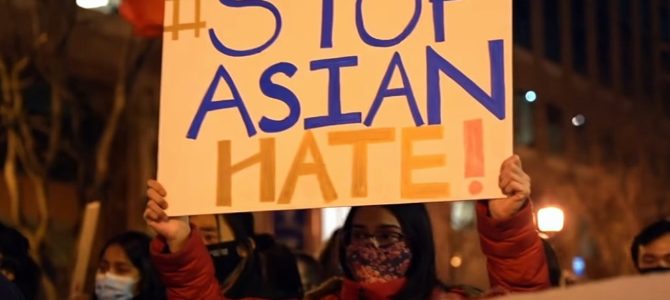Tuesday’s horrific killing spree that left eight people dead at three spas in the Atlanta area points to the grave danger of sex addictions. According to Police Chief Jay Baker, the perpetrator, Robert Aaron Long, admitted to police he has “sexual addiction” issues and the massage parlors were “a temptation for him that he wanted to eliminate.”
This motive is certainly plausible. Long was reported by those around him and by the police to have been plagued by sexual addiction, repenting and then relapsing by going to the places where he perpetrated the murders in order to engage in sexual acts. According to The Recovery Village, a network of centers for addiction research and treatment, those who have sex addictions “sometimes turn to criminal behavior,” which can be violent.
As Gail Dines writes in the Washington Post, “extensive scientific research reveals that exposure to and consumption of porn threaten the social, emotional and physical health of individuals, families, and communities, and highlights the degree to which porn is a public health crisis rather than a private matter.” Dines notes this research demonstrates a link between porn use and violent behavior, encouraging some to view men and women as mere tools for pleasure to be enjoyed and discarded.
COVID lockdowns may have also exacerbated sexual addictions. Research has demonstrated an increase in the use of pornography, pushed in part by the porn industry, which offered premium services for free during much of the lockdowns. The Atlanta murders, tragic as they are, underscore the urgency to talk more openly about the potential danger pornography poses to society.
Yet despite the evidence given by both Long and those who know him that pornography and sex addiction helped motivate his murders, many in the legacy media and on the left seem intent on establishing the link between these murders and “anti-Asian sentiment.”
Reuters reports the “motive in Georgia spa shootings uncertain, but Asian Americans fearful.” CNN argues, “it’s no coincidence that six of the eight victims were Asian women” and attempts to link this incident to 19th-century immigration laws and American soldiers soliciting Asian prostitutes in overseas wars generations ago.
The Huffington Post even blames Trump for “inciting violence” against Asian Americans. Furthermore, the press is trying to undermine the idea that sex addiction is real or could have played a role in motivating violence in order to push through their claims of racial hatred.
Asian American lawmakers like Rep. Doris Matsui, D-Calif., Rep. Judy Chu, D-Calif., and Rep. Grace Meng, D-N.Y., took advantage of the limelight to highlight the “systemic problem” of discrimination and violence against them. Chu stated, “It’s clear that the individuals were targeted because they are amongst the most vulnerable in our country: immigrant Asian women.”
In a White House press briefing, Press Secretary Jen Psaki, echoing the Huffington Post, blamed the “prior administration” for linking COVID-19 to Wuhan, which “elevated threats against Asian Americans.” Capitalizing on these claims, President Biden and Vice President Harris have planned a meeting with Asian American leaders in Atlanta on Friday.
It’s clear the left is trying to create a false narrative around these horrible murders in order to fit their political agenda. Without concrete acts of racism to point to, identity politics often relies on accusations of “systemic racism.” A real act of violence more easily motivates action, hence the riots and protests in the wake of George Floyd’s killing. The left believes it gains a tremendous amount of political capital from incidents such as these.
The prospect of another set of martyrs to push another identity group into the left’s fold is too strong a temptation to give up, even if means obscuring and deviating from the truth. Yet we owe it to the victims of this horrific crime to prevent that from happening.









